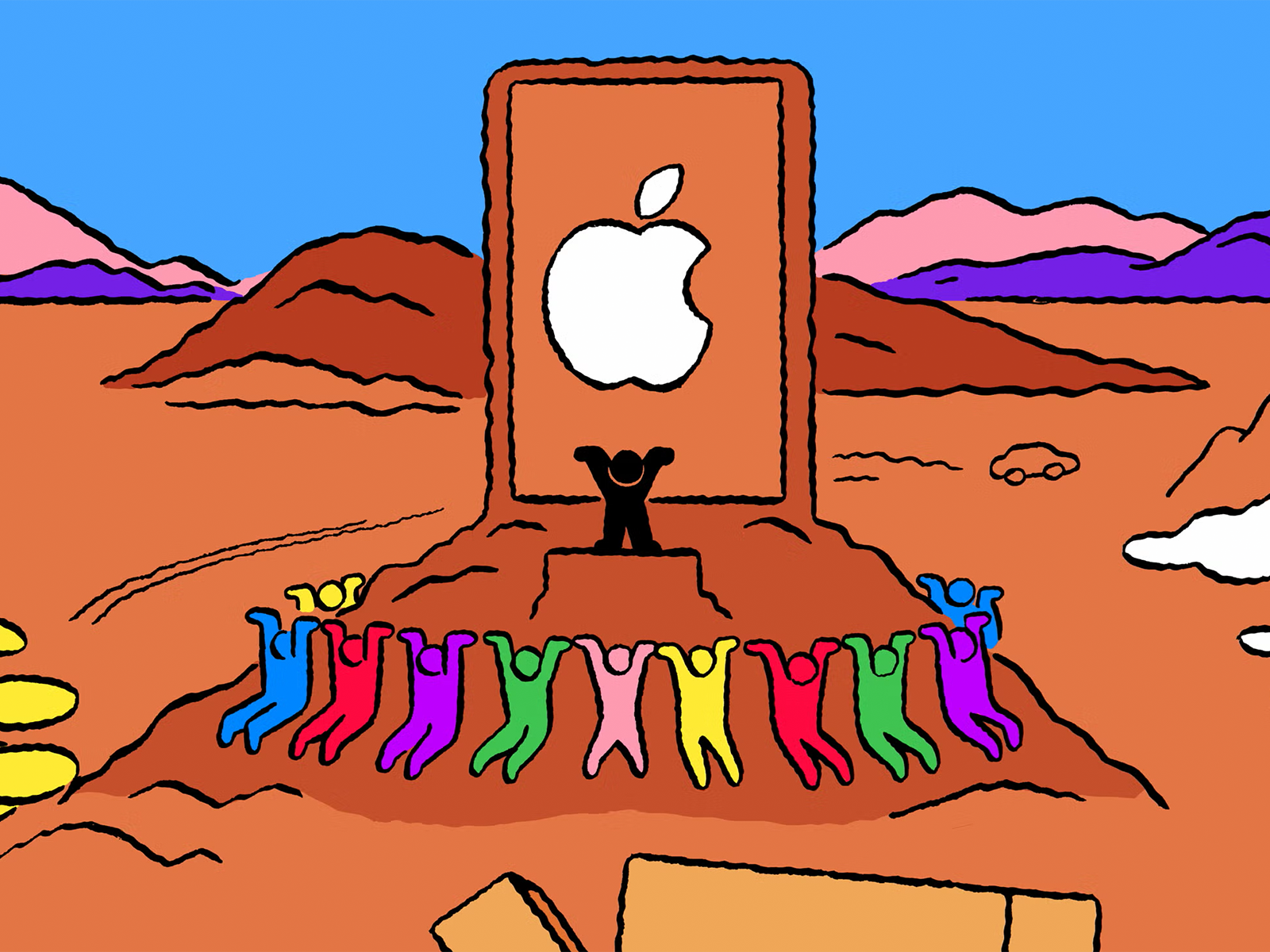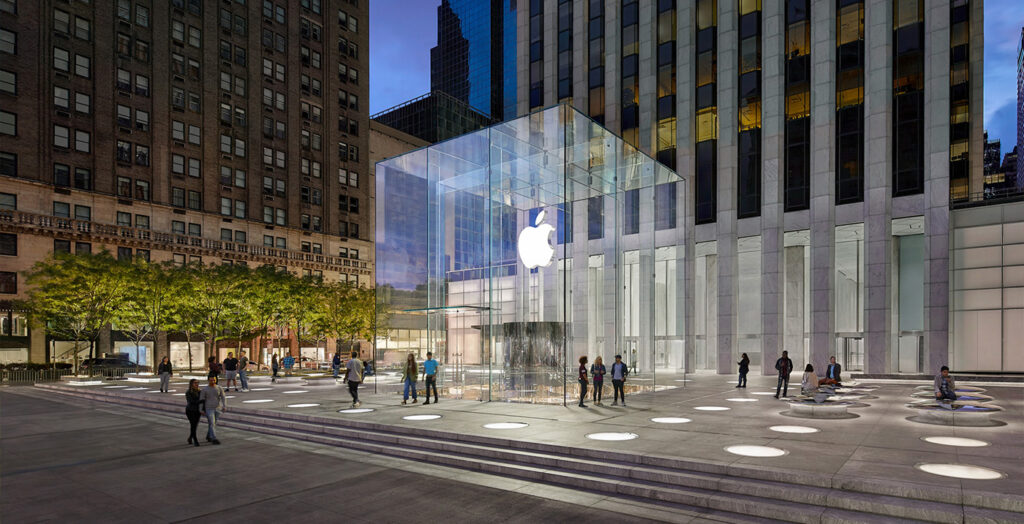Brands, Cults, and Apple

Nowadays, it’s common to see most modern brands using similar tone and voice, promoting aspirational campaigns, featuring heavy self-empowerment language, glossy imagery, and minimal logos. All these similarities exist because companies do no longer trying to sell a product but an entire lifestyle.
Consumers who see your product form ideas and opinions on it – regardless of how much information you’ve provided. That’s why establishing your brand and product through a lifestyle is something that customers are much more responsive to. Products that sell a lifestyle create an aspirational feeling, leading customers to think that this item may help them to achieve a better quality of living, grasp the kind of lifestyle they’re striving for, or, most importantly, create a community that can transform into a cult!
The key to building a solid brand is coining new terms and phrases and rebranding old ideas as something novel like cults. For a cult, inventing new words or phrases creates an internal language and a community, a subtle way to begin separating members from non-members who aren’t also part of the group. In most cults and religions, our bodies are referred to as “vehicles” for example, Scientology created new terms like “going clear” to take control of your thoughts. Brands, too, are experts at phrase coinage; think about “googling” or “ubering”. No one is better at this than Apple, from calling its tech support “Genius Bar” or calling the high-resolution screen technology “Liquid Retina”.
Apple is a perfect example with its emphasis on ceremony, and its messiah-like co-founder Steve Jobs, is a cult. Once you enter the Apple Store, you feel minuscule in the presence of a higher power that emphasizes your smallness and makes your body feel like you’re entering somewhere sacred or holy. They often feature stone or other types of austere, simple flooring like a church with products mounted on pedestals like individual altars. So it won’t be wrong to say if the Apple Store is a new type of cathedral, the Geniuses are its priests.
There is a study that Lindstrom conducted with neuroscientist Dr. Calvert. The study shows that the Apple brand is nearly identical to religion. The brand activity indicates no discernible differences between strong brands and religions. The reaction of the brain cells was almost identical to The Apple brand and religions.

The strong “cult” brands produced increased activity in areas of the brain associated with memory, decision-making, emotion, and, most importantly, religious experience, while weaker brands, in contrast, showed activity in entirely different brain regions. So what about Apple, or other strong iconic brands such as Harley Davidson, Nike, Starbucks, or Ferrari, triggers a religious experience? Lindstrom determined ten common pillars that all major religions share. However, no one has confirmed that the below experiences are what correlates to “religious” brain response.
Lindstrom determined 10 common pillars that all major religions share. However, no one has confirmed that the below experiences are what correlates to “religious” brain response.
01. Sense of Belonging
The most important is the concept of our social identity, which helps us again define ourselves through a group. For us as a species, being part of a group is a critical aspect, and it guarantees our survival. That’s why it is essential in everything we do, including the “brand groups” we may belong to.
02. A Clear Vision
Apple, in particular, has done an outstanding job of building a brand that allows you to identify with those who “think different”.
03. Power Over Enemies
Apple’s ads pitted the Apple user against the PC user, and Microsoft has been scrambling to win back power ever since. Now, Samsung has a similar approach to Apple, as Apple once did for Microsoft. Samsung started its campaign with a now-famous 2012 video ad highlighting the Apple fans who are waiting to buy the new iPhone as shallow and largely ignorant of what they were buying. You can watch the ad below.
04. Sensory Appeal
Sensory marketing involves implementing a marketing campaign that appeals to the audience’s five senses: sight, sound, touch, taste, and smell. Appealing to the senses effectively promotes products to consumers; that’s why sensory advertising can achieve perfect results. Senses marketing is always a simple yet effective approach to influencing consumers to make a purchase. There is no doubt that Coca-Cola is the best example of this one.
05. Storytelling
Steve Jobs’ introduction of the first iPhone in 2007 is the stuff of legend. He makes you get goosebumps watching it and basking in the masterful storytelling. Steve begins by telling the audience why they should care about what he’s about to tell them. Because of what Apple had done before, and because Apple knew its market so well, it was almost a given that people were invested in Steve’s presentation. But he doesn’t make that an excuse to ignore good storytelling principles. Watch the video below; it’s better to watch him in action!
06. Grandeur
The dictionary definitions of grandeur include having more importance than others, being large and striking in scope, extent, conception, or the quality or state of being impressive. Your brand can convey a sense of grandeur, an aspirational quality that also seamlessly fits into your fans’ life. For instance, Apple is all about grandeur, from Apple stores to conventions.
07. Evangelism
Brand evangelism can be defined as a consumer’s dedication and enthusiasm about a brand, generally inspired by an emotional connection. They enthusiastically recommend your brand simply because they enjoy it, which is the most valuable type of marketing; volunteering and word-to-mouth.
08. Symbols
Brand symbols (colloquially called “logos”) are visual characteristics of a brand. They represent the brand’s personality and contribute to its recognition rate. A brand’s personality is determined by its content (brand core values) and style (brand style), which must express these core values.

9. Mystery
Apple’s most refined marketing technique is the sense of mystery created around their new products. By the time a new Apple product hits the market, the whole world has already speculated, guessed, and spread rumors about their product. The best part, Apple never confirms or denies the rumors.
10. Rituals
Brand rituals are behaviors, habits, or ceremonies, and they have an enormous impact on brand loyalty. They offer consumers the chance to interact with a brand. Because people want more than just consumption – they appreciate rituals, which give them a sense of belonging and significance. For example, product releases and conventions bring Mac followers out in droves to be part of the rituals of Apple.

The next Crusades will be not religious but consumerist. The oldest joke about the cults is that “cult + time = religion”, meaning if you give a cult enough time, it’ll eventually be accepted as a religion. So perhaps it’s time to update the equation: cult + time = brand.

